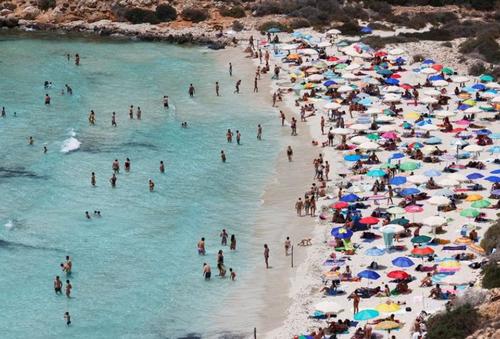Delta Variant Threatens To Spoil Europe’s Summer Tourism Season
Concerns about the Delta variant continued to have an impact on markets Thursday as Japanese equities tumbled after Tokyo health authorities confirmed the largest batch of new coronavirus cases in more than a month. But Japan isn’t the only country fretting about rising COVID cases caused by the Delta variant (and, specifically, the spread of the newfound “delta” variant).
After reassuring the public that England’s last remaining restrictions (each of the UK’s constituent nations has control over its own COVID restrictions) would expire as planned on July 19, PM Boris Johnson changed it up Thursday morning during a visit to a Nissan plant in Sunderland (in northeastern England) where he said he an additional phase of restrictions would be necessary, and he would be “setting in the course of the next few days what step four will look like exactly.
Japan’s decision to bar foreign spectators from the Olympics, along with the spread of Delta across the UK (which has inspired other European leaders to mull reviving travel restrictions and quarantine rules) pose a serious threat to the global tourism industry, which is struggling to recover from the historic hit it took last summer, when international travel was effectively shut down.
As public health officials embrace fearmongering tied to the Delta variant, the WHO warned on Thursday that the Euro 2020 football finals, which drew crowds to stadiums across the Continent and the UK, are likely the reason why a 10-week decline in new COVID cases has come to an end. Last week, the number of new cases rose by 10%, driven by mixing of crowds in Euro 2020 host cities, travel and easing of social restrictions, WHO said, according to Reuters.
“We need to look much beyond just the stadiums themselves,” WHO’s senior emergency officer, Catherine Smallwood, told reporters.
“We need to look at how people get there, are they travelling in large crowded convoys of buses? And when they leave the stadiums, are they going into crowded bars and pubs to watch the matches?”
“It is these small continuous events that are driving the spread of the virus,” Smallwood said.
Meanwhile, German Interior Minister Horst Seehofer called a decision by European soccer’s governing body UEFA to allow big crowds at Euro 2020 “utterly irresponsible”. UEFA responded in a statement, claiming mitigation measures at host venues “are fully aligned with the regulations set out by the competent local public health authorities”.
With all of this in mind, Reuters reported Thursday that the spread of the Delta COVID variant will result in “a complete wash-out” for the EU tourism industry, especially in hard-hit southern European states like Portugal. The EU “travel certificate” (read: vaccine passport) was supposed to be the industry’s saving grave. But while it only recently launched, the recovery in tourism in Portugal “has come to a halt”.
The Delta variant has been linked to more than half of new cases in Lisbon, along with many of the new cases confirmed in popular tourist areas. The UK also decided last month to remove Portugal from its “Green List” of destinations, while Germany has also moved to curb travel.
While a UN study released this week welcomed the EU’s vaccine passport as a “rare example of countries harmonising arrangements on travel,” but said it likely won’t be enough to save the summer tourism season.
Meanwhile, Capital Economics argued that the passport didn’t remove constraints for those not fully vaccinated, meaning travelers with unvaccinated children would still face restrictions due to their kids. Also, specific travel rules still vary from country to country.
For the EU’s tourism industry, it looks like they’ll just need to settle on “better luck next year”. Hopefully, scientists won’t find another variant to use as a boogeyman next summer, too.
Tyler Durden
Fri, 07/02/2021 – 05:45
via ZeroHedge News https://ift.tt/3xbXtqQ Tyler Durden
